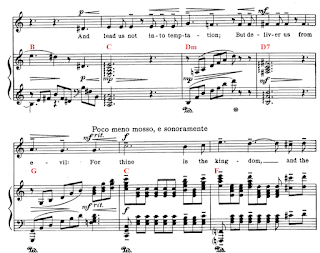Google “memorization techniques,” and you get over 8 million
results.
Ideas are presented in droves from acronyms and acrostics to
visualizing a room or writing things by hand.
Time-Honored Method
One of the best methods has been used for millennia. It has been used to memorize simple concepts
like letters of the alphabet as well as complicated lists like the periodic
table of the elements.
I’m willing to bet you’ve used this method, too!
Wide Variety of Uses
I used it last month to teach my 5-year old our family
member’s birthdays and I use it regularly to memorize large chunks of
text.
You can memorize grammar concepts, science facts,
multiplication tables – its uses are nearly endless!
Now I know my ABCs
How did you learn the alphabet?
Most people I know learned the 26 letters in order to the
tune of Twinkle Twinkle Little Star / Baa Baa Black Sheep. (Yes, they’re the same song. Yes, it took me a lot longer to realize this
than I care to admit. My son picked up
on it at about 2-years old when he would sing “ABCDEFG How I wonder what you
are.”)
To this day, when I am putting things in alphabetical order,
I still sing quickly through the song to put everything in order.
Schoolhouse Rock
My siblings and I watched a lot of Schoolhouse Rock growing up. I can still recite the Preamble to the
Constitution, count by 3’s, and know that a noun is a person place or thing.
Music is Glue
You can memorize nearly anything by putting it to song or
singing a song someone else has already written!
How many times have you heard a song that you
haven’t heard in 10 years and discover that you still remember all the words?
Music is a powerful memory device. It sticks information into your brain in a
way that it can be retrieved with ease.
Try it Out
Let’s memorize a 10-item grocery list using a song you
already know.
Read the following list and spend a minute trying to commit
it to memory:
Milk, Eggs, Toothpaste, Toilet Paper, Diapers, Wipes, Chips,
Salsa, Pepsi, and Mountain Dew.
How many items did you remember?
Now sing the same list below set to the tune of Happy
Birthday and see how many items you can remember.
“Milk and Eggs, Toothpaste, too!
Toilet paper for poo.
Diapers, wipes, chips, and salsa.
Pepsi and Mountain Dew.”
You don’t have to be a song writer to set any list to a
familiar song.
If you have more items, add a second verse!
Teach Your Child Your
Phone Number
You can write down your grocery list, text it to yourself,
use a grocery app, so perhaps memorizing your grocery list isn’t very exciting
or useful to you.
What about teaching a child to memorize a parent’s phone
number?
This could be life-saving if a child is lost or missing.
Sing the following to the tune of Row Row Row Your Boat.
“My phone number is
easy, can’t you see?
697-854-9873.”
easy, can’t you see?
697-854-9873.”
Most children could learn that song with a little
practice. Then when asked “What’s your
phone number?” they can sing their song.
To take advantage of the rhyming scheme use the following lyrics
based on the last digit of your phone number:
1 – My phone number is / easy and it’s fun! 697-854-9871
2 – My phone number is / easy, yes, it’s true! 697-854-9872
3 – My phone number is / easy can’t you see? 697-854-9873
4 – My phone number is / easy. Sing it more! 697-854-9874
5 – My phone number is / easy to arrive? 697-854-9875
6 – My phone number is / easy with these tricks!
697-854-9876
7 – My phone number is / easy to teach Kevin! 697-854-9877
8 – My phone number is / really really great! 697-854-9878
9 – My phone number is / really very fine! 697-854-9879
0 - My phone number is / easy for me to know! 697-854-9870
I Can Help
If you need help putting important information to song, leave a comment or send me an email at gtlockhart2010@gmail.com. I'd love to write you something!










